By Clifford Coonan in BeijingThursday, 18 September 2008
 Li Dongyang, an eight-month-old child who suffered from kidney stones receives medical treatment at a hospital in Hefei, Anhui province September 17, 2008. China said on Wednesday a third infant had died from drinking milk contaminated with toxic melamine and 6,244 infants were sick as four officials were sacked amid a widening scandal.
Li Dongyang, an eight-month-old child who suffered from kidney stones receives medical treatment at a hospital in Hefei, Anhui province September 17, 2008. China said on Wednesday a third infant had died from drinking milk contaminated with toxic melamine and 6,244 infants were sick as four officials were sacked amid a widening scandal.
Frightened, angry parents took their babies for testing at hospitals all over China today to see if their children have been made sick by the greed of unscrupulous farmers and negligent food companies.
Parents are furious after four children died and hundreds are sick following the discovery of the dangerous chemical melamine in baby milk formula.
Thousands more are at risk, raising fears that this is just the tip of the iceberg.
At Beijing's Capital Institute of Paediatrics hospital, hundreds of worried parents carried their blissfully unaware babies in their arms.
The queue stretched from the administrative building back out into the yard behind the building.
"Of course we're angry – the company should have made routine checks, not just because of the discovery of this chemical," said Song Xuejian, who was minding her 14-month-old granddaughter Miting, while her daughter stood in the queue.
The health scare first emerged after China's biggest dairy, the Sanlu Group, revealed its milk powder contained melamine, which is used to make it look like the milk contains more protein than it really does. A subsequent investigation showed that 22 of 109 Chinese dairy producers, including top brands, made products adulterated with the substance.
Miting had been drinking one of the formula brands on the list of contaminated products.
"I was very frightened and worried when I heard the news first. Like many people, we have only one child in our family, so we're very worried. If she's okay, we'll all be very relieved," said Song.
As well as fear and anger, there is shock. There is something so basic about milk for a baby. If not even the simplest human needs are immune from money-grabbing criminals and corrupt officials, then what is left?
Ji Chuntang, the mayor of Shijiazhuang, capital of Hebei province, where Sanlu has its headquarters, , has been fired, , while Sanlu's chairwoman Tian Wenhua has been detained by police.
The scandal took a long time to come to light and the first baby died back in May. Sanlu is 43-per cent owned by New Zealand's Fonterra Co-op.
Their initial approaches were ignored, possibly for fear of souring the Olympic spirit, and New Zealand's Prime Minister, Helen Clark, said she ordered her officials to bypass regional authorities and inform Beijing directly.
There have been 18 arrests so far and the Hebei police said it confiscated 300 kilos of suspected chemicals, mostly melamine. One suspect, surnamed Su, told police that from February 2007 to July 2008 he bought 200 20-kilo sacks of melamine, and sold them all to milk suppliers. Which raises the possibility that this has been going on for a lot longer than a couple of months.
In a Beijing supermarket, expectant mother Zhu Weiwei, 31, a maths teacher, said she feels lucky her baby hasn't been born yet.
"If he or she was born a few months ago, I think I would also feed him or her with Yili or Meng Niu milk powder. Those brands are quite famous," said Zhu.
"I feel dismayed about our domestic brands. I heard some officials were fired. But it cannot compensate those poor babies. Money can't do everything. How can those people do such a terrible thing to babies for money? I will of course buy foreign brands in future," she said.
The "Made in China" brand has been badly tarnished in recent years by a rash of food and product safety scares, ranging from lead paint in toys to dumplings laced with pesticide sold in Japan, to toxic fish and poisonous cough medicine.
The government swore it would improve testing and safety procedures after last year's scandals, which culminated in the execution of its sacked food and drug safety czar.
But there have been whispers that authorities tried to cover up the revelations of toxic baby formula initially so as not to sour the Olympic atmosphere. The first baby to die, a five-month-old boy, passed away on May 1, four months before the scandal became public.
Shen Xiaohong, a PR manager, 28, said she is not buying domestic milk anymore.
"I don't want to spend my money to poison myself," she said. "And to think these were "Inspection-free products"."
"Inspection-free" is a special status awarded to the most trusted food producers, and a slogan used by them in advertising. This is one of the reasons why this scandal has really shocked people in China, and the status has been revoked by the government.
Chinese webizens have started using grim sign-offs on their instant messenger programmes to register their horror at the food scandal. After a month of pride in China's national achievements, the food scandal has
reignited negative sentiments about China's abilities to compete internationally.
"We work hard for six months, then suddenly we return to the pre-Olympic era". "Drink a glass of milk a day, wipe out a country!", "Drink milk, kill the next generation" and, perhaps most tellingly, "Foreign milk costs money, domestic milk costs lives".















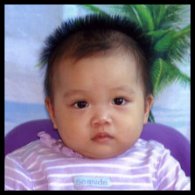































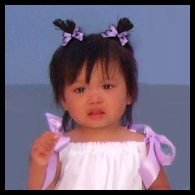
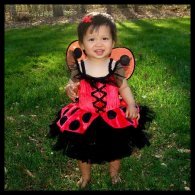
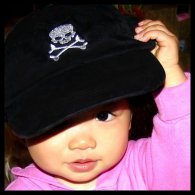
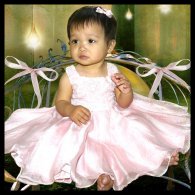
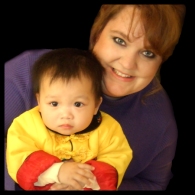
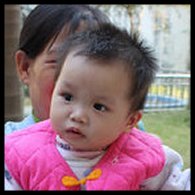
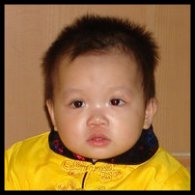

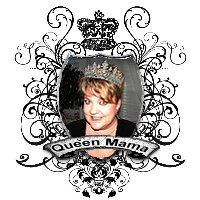




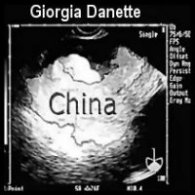
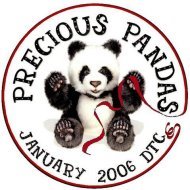
2 comments:
Oh how scary. What an interesting article, but look at that sweet babys face
Melamine is generally used to make fertilizers and plastics. Apparently whole bags of the stuff were dumped in with the milk powder and also in some powder marketed as "maternity milk" (suggesting that not ALL unborn babies have escaped possible harm.)
When people say (as mentioned in two posts down) that "She's a very lucky girl"....they may just be right! - At least she won't be living in a country where food production is not subject to strict enough controls to protect it's youngest and most vulnerable citizens! :) Annie
Post a Comment